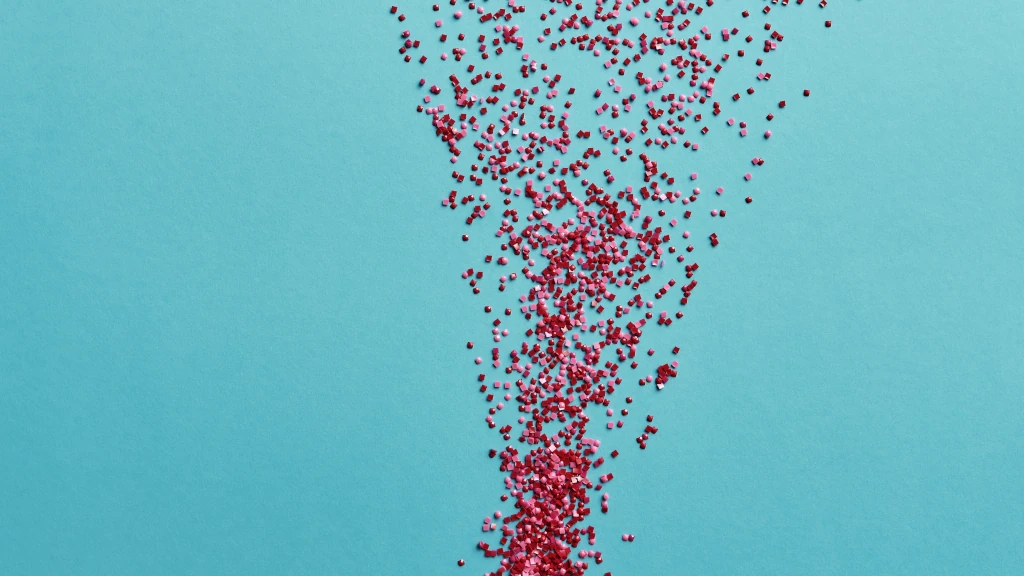Period Poverty - A hidden crisis affecting millions.
Hello, dear readers. As a hygiene underwear business, we are privileged to learn about and engage with a wide range of issues related to menstrual health. Today, we want to share with you a story that’s often hidden in the shadows: the story of period poverty.
What is Period Poverty?
It is a term that might be unfamiliar to some. It refers to the lack of access to menstrual products, education, hygiene facilities, waste management, or a combination of these. It’s a global issue affecting those who don’t have access to the safe, hygienic menstrual products they need, and/or who are unable to manage their periods with dignity. It affects an estimated 500 million people worldwide. It’s not just a problem in developing countries; it’s also prevalent in developed nations.
The Consequences of Period Poverty
The effects of period poverty are far-reaching and can have serious implications for those affected. Girls often miss one or more days of school during their periods, which negatively impacts their education. The loss of education can mean girls are more likely to be forced into child marriage. There are serious health risks when people are forced to use dirty rags which can cause infection. Risks can be greater if the women or girl has undergone female genital mutilation (FGM).
The Statistics Behind Period Poverty
To understand the scale of period poverty, let’s look at some statistics:
- Globally, an estimated 500 million people who menstruate lack access to menstrual products and hygiene facilities.
- There are an estimated 16.9 million people who menstruate living in poverty in the United States.
- A study involving college-aged individuals who menstruate reported that 14.2% had experienced period poverty in the past year.
- Over one-third (38%) of low-income women report missing work, school, or similar events due to lack of access to period supplies.
Who is affected by Period Poverty in Europe?
It is a significant issue in Europe, affecting an estimated 10% of menstruators. The data on period poverty in Europe is fragmented, and there are no official numbers on the issue as a whole. However, it’s clear that period poverty is a pervasive problem that needs to be addressed.
Combating Period Poverty: The Role of Governments and Organizations
Governments and organizations across Europe are taking various steps to combat period poverty:
- Spain: Women suffering severe period pain will be allowed to take between three and five days off a month under a planned new law.
- Scotland: Became the first country in the world to offer free sanitary products to all women. Tampons and sanitary pads are freely available at designated public places like community centres, pharmacies, and youth clubs. >> Read more here
- New Zealand: The government announced that its schools would have free access to sanitary products from June 2021.
- France: The government is investing €1 million in the roll-out of free period products to schools.
- Belgium: As of 2020, the Belgian government committed €200,000 to address period poverty in the nation.
In addition, organizations such as Young Feminist Europe are working towards promoting menstrual health and fighting period poverty. They are raising awareness among youth and the general population around the issue in Europe. They are also connecting and creating synergies with other young European and intersectional activists working on period poverty and menstrual hygiene products to share experiences and knowledge and highlight grassroots local initiatives around this.
Period Poverty in Austria
It is also a significant issue in Austria, with one in three women finding their monthly period expenses a financial burden. The small Alpine country of just under 9 million inhabitants counts half a million women in poverty. There have been cases of women, particularly the homeless, using socks as a cheaper alternative to sanitary products.
The Austrian Social Ministry stated in its Women’s Health Action Plan that the country has a low level of health literacy when compared internationally and correlated low economic status with insufficient health literacy. Education in sexual health is seen as necessary to not only teach young women about what’s happening biologically, help them understand the best sanitary products to use and their alternatives and how to use them safely but also expose men to these issues, and normalize what is often seen as an ‘off limits’ topic.
It’s clear that more needs to be done to address this issue and ensure that all individuals have access to the menstrual products they need.
In October 2021 the city of Vienna introduced the “Rote Box” project, that offers tampons and menstrual pads to women in need for free. This project evolved from 4 places in the 20th district in 2021 to the hole city starting in October 2023. >> Read more here
How Can You Help?
As individuals, we can also contribute towards ending period poverty. Donating sanitary products to local shelters or organizations that distribute them to those in need is one way. Advocating for policies that make menstrual products more accessible and affordable is another.
Where Can Those Affected by Period Poverty Get Help?
There are numerous resources available for those affected by period poverty. Many local shelters and food banks distribute free menstrual products. Organizations like Alliance for Period Supplies provide resources and support for individuals experiencing period poverty.
In conclusion, period poverty is a significant issue that affects millions worldwide. However, with increased awareness and action from individuals, governments, and organizations alike, we can work towards a future where no one has to experience period poverty.
If you found this article informative and want to learn more about such issues, feel free to subscribe. Let’s continue this journey together.
Remember: Knowledge is power. Let’s use it to make a difference.
#PeriodPoverty #CedenuCares

